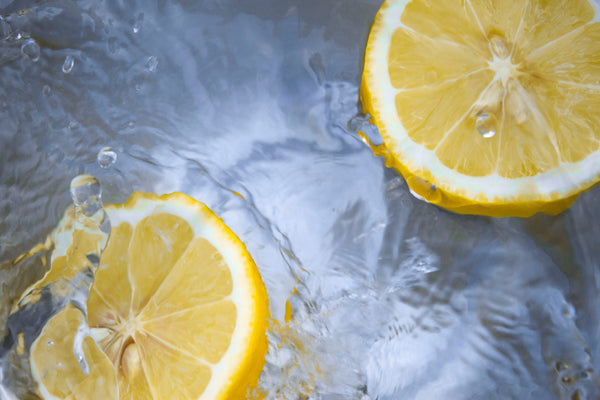Going Beyond the Surface: An Introduction to Skin
Did you know? Your skin stretches over 20 square feet!
Skin = Health?
When we talk about physical health, we think of detoxifying our kidneys or doing cardio for a healthy heart—but what most people don’t realize is that skincare plays a huge role in our physical health!
In fact, skin is the largest organ of our body, as well as our immune system’s primary defense against dirt, illness, and disease.

Photo by Aiony Haust on Unsplash
It’s well-known that skin is one of the first and most telling markers of poor health. Lack of sleep leads to dull skin, while dehydration can cause dryness and breakouts. But skin is more than just vanity or a harbinger of health doom: skin health is essential to keeping the rest of our body healthy, too.
Unhealthy skin is more susceptible to infection, allowing bacteria to enter the body and multiply. On the other hand, healthy skin cells combat UV damage, help regulate hydration, and prevent cancerous cell carcinoma.
Understanding Our Skin

Diagram from WebMD
The skin is made up of three main layers: the epidermis, dermis, and hypodermis (or the “superficial fascia”). Each layer of the skin has a different—though equally crucial—function in healing, regenerating, and keeping our skin healthy.
Epidermis: Skin-Deep

Photo by Aaron Burden on Unsplash
The epidermis is the outermost layer of the skin, with “epi-” meaning “upper” or “over” and “dermis” meaning “skin.” Distributed across the epidermis are melatonin, which dictates our skin tone, and keratin, which defends against environmental irritants. Epidermal skin cells, also called squamous cells, are continuously shed and regenerated to form a waterproof moisture barrier that locks in hydration.
Dermis: A Cushion of Collagen

Photo by Rodion Kutsaev on Unsplash
As it lies directly underneath the epidermis, the dermis is often called the “true skin.” The dermis is a major collagen and elastin storage source: these two major proteins keep our skin smooth, elastic, and supple. Home to the skin’s blood vessels and lymphatic system, the dermis helps to heal wounds and deliver nutrition to the epidermis. Sebaceous glands, which produce sebum, a waxy substance responsible for skin moisture and oiliness, are also located here.
Hypodermis: Soft on the Inside

Photo by Tirza van Dijk on Unsplash
Every time you sit on a hard surface, you’ve got your hypodermis to thank! The hypodermis is also known as the subcutaneous layer, which means “under the skin.” Fittingly, it’s a layer of body fat and connective tissue located under the dermis that absorbs shock: think of it as a protective pillow between sharp bone and delicate skin. This is also where our sweat glands reside, making the hypodermis doubly crucial for regulating body temperature.
Did you know? 20% of all the water in your body is stored in the skin!

Why Does Skincare Matter?
Just like sleep, nutrition, and exercise, good skincare habits go a long way towards maintaining healthy skin and bodies as we age. Facial skin is particularly delicate and sensitive, making a skincare routine an essential part of a healthy lifestyle, especially for busy city-dwellers. Skincare and beauty can also boost our confidence and provide a smooth, clear canvas for self-expression through makeup!
From the Inside Out
A curated skincare routine starts with understanding the skin and how we can protect, support, and care for it. Knowing which areas to target with the right ingredients will help you build an effective regimen that’s right for your skin, to bring out your inner glow.

Hydro-Power Brightening Cleanser (HKD360)
To clear up acne-prone skin
Whiteheads, pimples, and cysts develop when sebaceous glands in the dermis get clogged with sebum and dead skin cells.
- Hydrate and soothe epidermal irritation with Sea Kelp extract in the Hydro-Power Brightening Cleanser
- Stabilize sebum production in the dermis with Green Tea Leaf extract in the Antioxidant Hydrating Toning Essence

To balance hydration
Hydrated skin is healthy skin! From oil production to texture and suppleness, keeping your epidermis and dermis hydrated is key.
- Boost moisture levels with Hyaluronic Acid and Snow Mushroom extract in the Advanced Hyaluronic Serum
- Lock in hydration with Olive Fruit Oil in the Intensive Water-Glow Moisturizer

Miracle Glow Facial Oil (HKD820)
To rejuvenate aging skin
Collagen production in the dermis slows with age. Combined with sunlight, pollution, and dry air-conditioning, this can cause dullness and fine lines.
- Restore collagen and brighten dark circles with Squalane in the Miracle Glow Facial Oil
- Refine sagging skin and erase wrinkles with the Restore! Rose Quartz Gua Sha Tool (learn about the benefits of rose quartz and traditional Gua Sha here!)
Still curious about what your skin type is, why vegan beauty is best, or why some alcohols are good for your skin? You’ve come to the right place—check out our blog for more!
Written by Fion Tse












